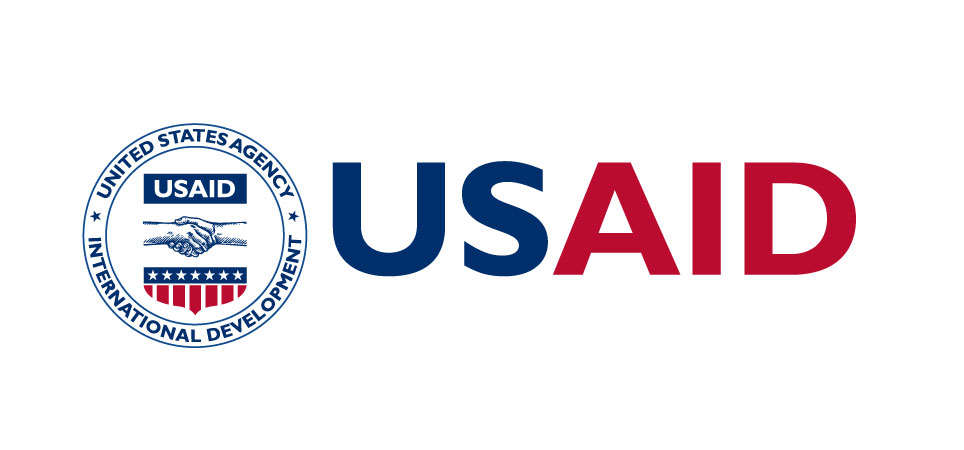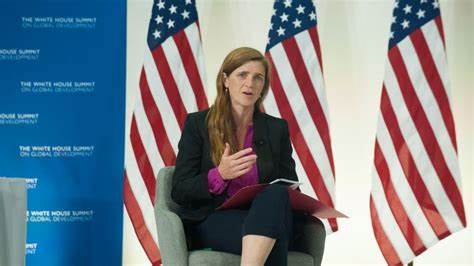author:Zeng Lu
USAID is one of the largest foreign aid agencies in the world. On November 4th, USAID Administrator Samantha Bauer delivered a speech at Georgetown University, explaining the new vision of USAID.
Total words2462About7minutes
On November 4th, US Agency for International Development (USAID, hereinafter referred to as UNDA) Administrator Samantha Power delivered a speech at Georgetown University, expounding the new vision of USAID. Power said UNDP should be a more inclusive development agency. Power took office as UNDP administrator in May this year and entered the National Security Council of the White House. Prior to this, Power served as the Obama administration's ambassador to the United Nations. During his tenure, he devoted himself to issues such as United Nations reform and women's rights.
United States Agency for International Development (USAID)

The U.S. Agency for International Development (USAID) is the U.S. government agency responsible for international development and humanitarian efforts. U.S. foreign aid aims to promote U.S. national interests and improve the lives of people in developing countries. UNDP supports U.S. foreign policy by promoting broad-based human progress while expanding social stability and freedom, creating markets and trading partners for the United States, and building goodwill abroad.
Working in more than 100 countries around the world, UNDP focuses on global health, delivering humanitarian assistance, fostering innovation and collaboration, and empowering women and girls. For fiscal year 2022, the Biden administration's budget request for the United Nations Development Agency (USAID) is $27.7 billion.
UNDP is one of the largest foreign aid agencies in the world. It was created by the then US President Kennedy through an executive order in 1961. This year marks the 60th anniversary of the establishment of UNDP.
Bauer expounded the institutional vision from three perspectives, and proposed a package of measures to realize the vision.
First, expand the diversity of itself and partner institutions, and improve access to aid.Global conflicts and the COVID-19 pandemic have led to increased development needs. Over the past 20 years, the number of emergencies handled by UNDP has jumped from 16 to 44 a year. Due to severe understaffing, UNDP has been forced to use a large number of short-term employees in business areas such as global health, humanitarian assistance, conflict prevention and stability, and the proportion of contract staff in some areas is as high as 90%. UNDP is also significantly underrepresented by people of color in senior, policy and technical roles. In addition, UNDP has limited engagement with the private sector and recipient country institutions. In 2017, UNDP's 60% aid projects were implemented through 25 major partner agencies, and only 5.6% of aid funds were implemented through recipient country agencies.
In order to improve the above problems, UNDP plans to actively recruit African-American and Hispanic minority employees, and narrow the treatment gap between employees of different contract types. In addition, UNDP will launch a new flexible fund to promote and expand cooperation with the private sector, and launch the WorkWithUsaid.org website to make it easier for US small businesses, NGOs, service organizations and others to work with UNDP. In the next four years, UNDP plans to implement no less than 25% of development assistance funds through local partners in recipient countries, and will authorize UNDP staff in recipient countries to play a greater role in the distribution and management of aid. Bauer announced that UNDP will launch the Center for Places initiative, providing $300 million in grants to organizations in Honduras, El Salvador and Guatemala.
Second, focus on marginalized voices to make aid more inclusive.Currently, only a small amount of UNDP's aid budget is implemented through local partners in recipient countries, and most projects do not reach marginalized groups such as women, girls and people with disabilities in recipient countries. Traditional power relationships where aid is driven by donors will only exacerbate systemic inequalities that already exist, Ball said. It is necessary to consciously expand the participation of local institutions in recipient countries, make the voice of recipient countries the center of aid, and respect the knowledge and experience of local communities in recipient countries in order to truly improve the inclusiveness of aid.
To achieve the above goals, UNDP plans to involve local communities in recipient countries in the planning and design of 50% aid projects within ten years. UNDP will continue to take steps to expand and strengthen the newly created Office of Inclusive Development and support staff to increase their focus on marginalized populations such as women and Indigenous Peoples. UNDP plans to institutionalize a dedicated gender and inclusive development diplomat in each diplomatic mission and office. In addition, UNDP plans to establish a new Office of Behavioral Sciences and Experimental Economics to strengthen the empirical basis for high-quality decision-making.
Third, listen to the needs of partners in recipient countries and improve the ability to respond quickly to aid.The new crown epidemic, climate change, and corruption are global challenges facing the world today. Developing countries face serious challenges such as the serious shortage of new crown vaccines and other vaccines, and the limited capacity of the health system. They urgently need help from the international community. In addition, developing countries, which have the least impact on climate change but face the severe challenge of climate change, also urgently need support from all parties. To meet this challenge, UNDP actively supports the delivery of more vaccines to low-income and low-middle-income countries around the world .
So far, UNDP has provided developing countries with more than 1 billion doses of Pfizer vaccines and 200 million doses left in the country. If approved by Congress, UNDP will provide $100 million per year to the most vulnerable developing countries to fight climate change. UNDP will help more than 500 million people adapt to climate change and support people when crops fail or livestock die by supporting drought-tolerant agriculture, building storm warning systems and creating new insurance schemes. As a wealthy country, the United States is responsible for some of the carbon pollution in the atmosphere, Ball said. The United States therefore has a special responsibility to help low-emitting, low-income countries cope with and manage the severe impacts of climate change.
All rights reserved, please indicate the source when citing.
References
Past review
- The International Implications of Biden's Development Cooperation Policy
- Why Does the United States Favor Multilateral Aid?
- Trump vs. Biden: A Development Perspective on the 2020 U.S. Presidential Election
- New Version of the "Foreign Aid Management Measures" Reveals Four Trends in China's Foreign Aid
- Seven Principles Likely to Influence Germany's Post-Election Development Cooperation Policies
- UK's 30% Reduction in Foreign Aid Budget Raises Concerns

